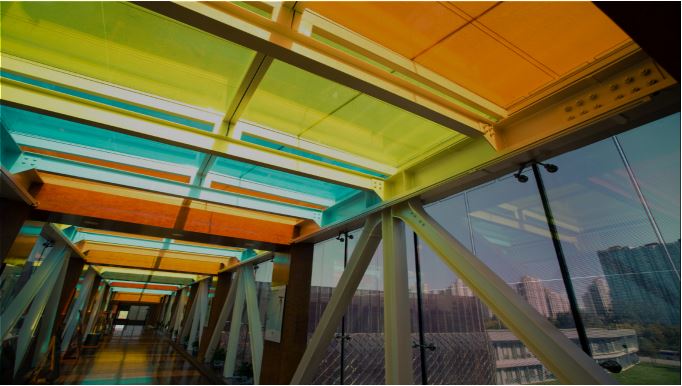Heat-resistant glass is a vital material in both residential and commercial applications, offering the ability to withstand high temperatures without compromising its structural integrity. This type of glass is specifically designed to perform in environments where extreme heat is a factor, making it an essential component in various industrial, architectural, and household contexts. This blog explores the benefits of heat-resistant glass and its diverse applications.
What is Heat-Resistant Glass?
Heat-resistant glass, also known as high-temperature glass, is engineered to endure high temperatures and thermal shocks. It is manufactured using special materials and processes that enhance its ability to resist thermal stress and maintain stability under extreme heat conditions. Common types of heat-resistant glass include tempered glass, borosilicate glass, and ceramic glass.
Benefits of Heat-Resistant Glass:
1. Thermal Stability
- High Temperature Endurance: Heat-resistant glass can withstand temperatures far higher than standard glass, making it suitable for use in high-heat environments such as ovens, furnaces, and fireplaces.
- Thermal Shock Resistance: This glass type can endure rapid temperature changes without cracking or breaking, which is crucial in applications where the glass may be exposed to sudden heating or cooling.
2. Safety
- Enhanced Strength: Heat-resistant glass is typically tougher and more resilient than regular glass, reducing the risk of breakage.
- Shatter Resistance: In the event of breakage, heat-resistant glass is designed to break into smaller, less dangerous pieces, reducing the risk of injury.
3. Durability and Longevity
- Long-Lasting Performance: Due to its ability to withstand high temperatures and thermal stress, heat-resistant glass offers long-lasting performance, making it a cost-effective solution over time.
- Resistance to Chemical Corrosion: This type of glass often has enhanced resistance to chemical corrosion, maintaining its clarity and strength in harsh environments.
4. Energy Efficiency
- Improved Insulation: Heat-resistant glass can provide better insulation compared to standard glass, helping to maintain desired temperatures and improve energy efficiency in various applications.
- Reduced Heat Loss: In architectural applications, heat-resistant glass can help reduce heat loss, contributing to more energy-efficient buildings.
5. Versatility
- Wide Range of Applications: Heat-resistant glass is used in a variety of settings, from industrial processes to household appliances and architectural elements.
- Customizable Options: Available in different shapes, sizes, and thicknesses, heat-resistant glass can be customized to meet specific needs and design requirements.
Applications of Heat-Resistant Glass:
1. Industrial Applications
- Furnaces and Kilns: Used in furnace and kiln windows to provide visibility while withstanding high temperatures.
- Laboratory Equipment: Essential in laboratory glassware and equipment that must endure high heat and thermal shocks.
- Industrial Process Windows: Installed in process observation windows to allow safe monitoring of high-temperature industrial operations.
2. Residential Applications
- Oven Doors: Commonly used in oven doors due to its ability to withstand high cooking temperatures.
- Fireplace Doors: Installed in fireplace doors to provide safety and clear visibility of the fire while enduring the heat.
- Cooktops and Stovetops: Used in glass-ceramic cooktops for their heat resistance and durability.
3. Architectural Applications
- Skylights and Roof Windows: Utilized in skylights and roof windows to withstand heat from direct sunlight and temperature fluctuations.
- Facade Systems: Incorporated into facade systems for buildings that require enhanced thermal performance and safety.
- Balustrades and Railings: Used in outdoor balustrades and railings where exposure to high temperatures and thermal stress is a concern.
Maintenance Tips for Heat-Resistant Glass:
1. Regular Cleaning
- Use Appropriate Cleaners: Clean heat-resistant glass with non-abrasive, appropriate cleaners to avoid scratches and maintain clarity.
- Avoid Thermal Shock: When cleaning, avoid sudden temperature changes, such as spraying cold water on hot glass, to prevent thermal shock.
2. Routine Inspections
- Check for Damage: Regularly inspect the glass for any signs of damage or wear and address any issues promptly to ensure continued performance and safety.
- Maintain Seals and Frames: Ensure that the seals and frames holding the glass are in good condition to maintain the integrity of the installation.
3. Professional Maintenance
- Expert Assistance: For specialized applications, consider professional maintenance services to ensure the glass is properly cared for and performs optimally.
Heat-resistant glass is an indispensable material in various applications, offering superior thermal stability, safety, durability, and energy efficiency. Its ability to withstand high temperatures and thermal shocks makes it a valuable asset in both residential and industrial settings. By understanding the benefits and proper maintenance of heat-resistant glass, you can enhance the performance, safety, and longevity of your installations.
FG Glass: Your Partner in High-Quality Heat-Resistant Glass Solutions
At FG Glass, we provide a comprehensive range of heat-resistant glass products designed to meet the highest standards of performance and safety. Our solutions are tailored to enhance the functionality and durability of your projects, whether they are industrial, residential, or architectural. Discover how FG Glass can help you achieve your goals with our innovative glass products. For more information, visit fgglass.com.

You might also like
Feb 21, 2022 by TARIQ KACHWALA
Feb 21, 2022 by TARIQ KACHWALA
Feb 23, 2022 by TARIQ KACHWALA









